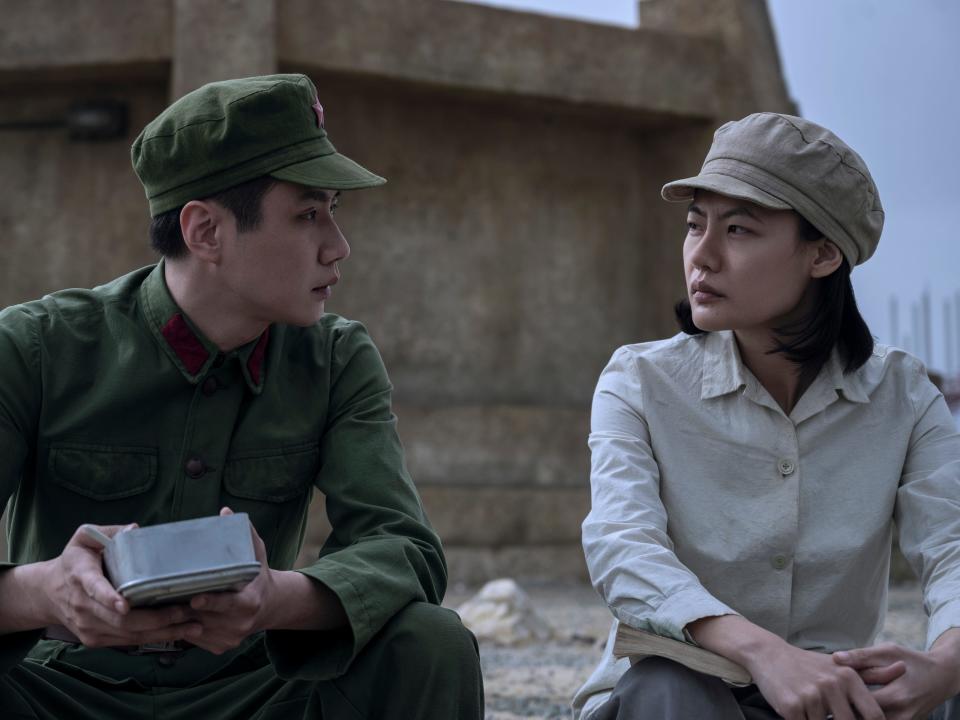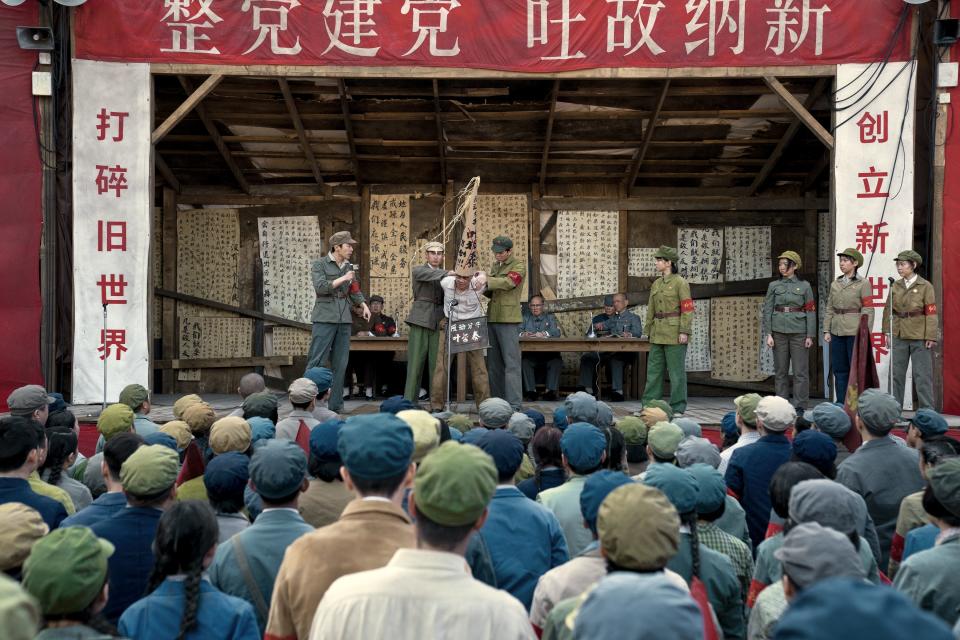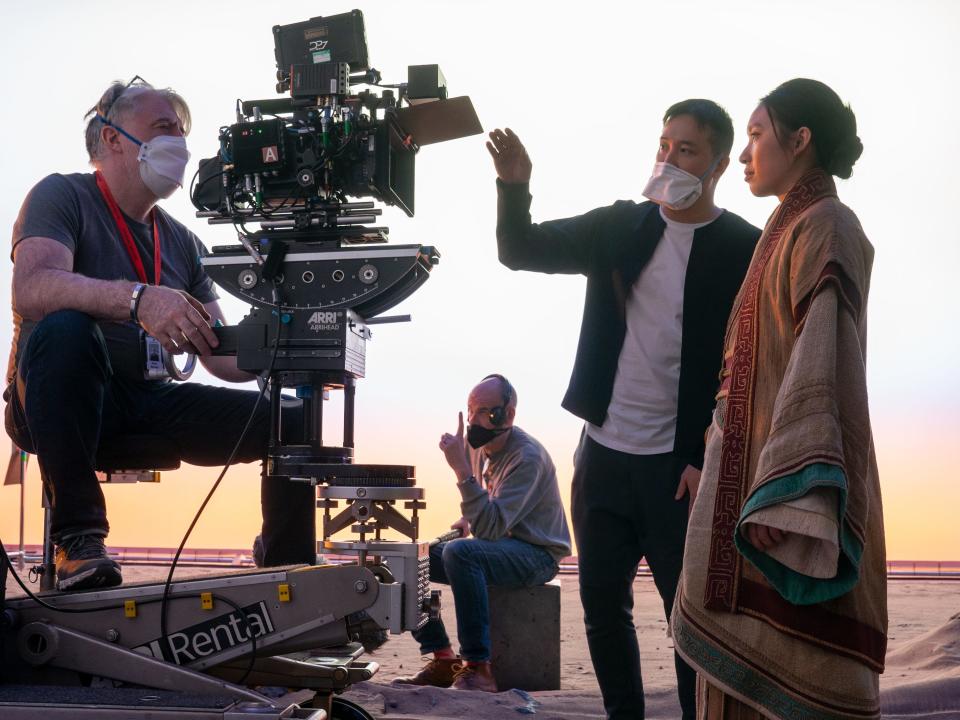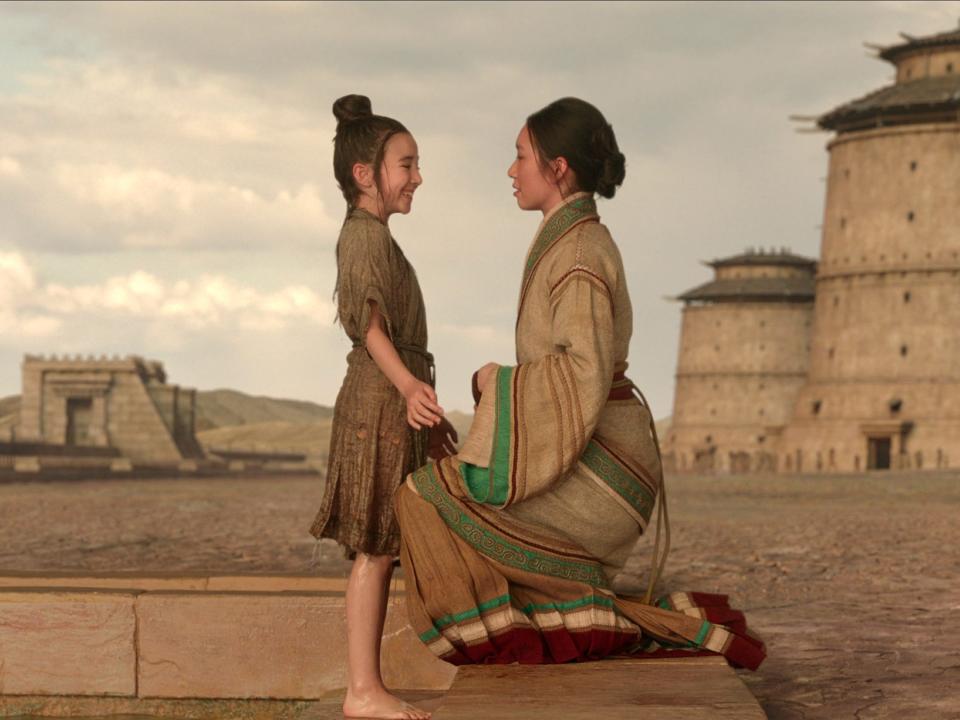'3 Body Problem' director says the 'pressure was huge' to represent Chinese history accurately on screen
- Oops!Something went wrong.Please try again later.
- Oops!Something went wrong.Please try again later.
- Oops!Something went wrong.Please try again later.
"3 Body Problem" is a show about aliens — but before that, it's about a woman during the Cultural Revolution.
Hong Kong director Derek Tsang depicted the show's first two episodes, which tell Ye Wenjie's backstory.
BI spoke with Tsang about depicting Chinese history on screen — and the odd moment of nudity on-screen.
Netflix's "3 Body Problem" is preoccupied with the far-flung reaches of the universe — but its moments of deep, historical specificity are where it thrives the most.
The show is adapted from Chinese author Liu Cixin's "Remembrance of Earth's Past" trilogy. The entire series hinges on one deeply personal choice: Ye Wenjie, an astrophysicist, tells the alien antagonists to come to Earth after she comes to believe that humanity cannot save itself.
It's a difficult sell, but a crucial one. For the show to work, you have to empathize with Ye, even as she singlehandedly charts the course of her planet.
Showrunners David Benioff, D.B. Weiss, and Alexander Woo enlisted the Hong Kong director Derek Tsang (the filmmaker behind the Oscar-nominated "Better Days"), to direct the two episodes most anchored in Ye's early life, which take place during Cultural Revolution China.
According to the director, that wasn't a coincidence.
"It's obvious that one of the reasons why I'm on board is because I'm a Chinese director, so I understand that part of history better and I have more reference and more, I guess, personal perspective from it," Tsang said.
While Tsang told BI that he was excited to do more fantastical VFX work on the show, it's in Ye Wenjie's past that his work on the show shines brightest. BI spoke with the director about the pressure to authentically render Chinese history and virtual reality alike on screen.

In these first two episodes, you do some of the meatiest character work in the series with actor Zine Tseng, who plays young Ye Wenjie. You had the very difficult task of convincing us that someone could make the decision that she does in this show — how did you approach that?
I think from day one, between me, Dave, Dan, and Alex, we came to a consensus that we want the audience to empathize with Ye. I think it's one of my biggest tasks, to make the audience step in her shoes and really feel like if you've been through what she's been through, you would press that button too. You would just do exactly what she did, even though it changed the course of human history.
That was, for me, one of the biggest responsibilities as a director for these two episodes because that is such an important element in the story — really, what kickstarted the whole story — and all the events that come later on. I think it's really fundamental that we get that right, and get the audience to, in a way, side with Ye.
You've spoken a bit about how your other big responsibility in these two episodes is to authentically render the Chinese elements that did make it into this version of the story. What did that responsibility feel like, and what was your approach?
I think it's a huge responsibility for me. It's obvious that one of the reasons why I'm on board is because I'm a Chinese director, so I understand that part of history better and I have more reference and more, I guess, personal perspective from it. So the pressure is huge. From the beginning, I really felt like I have to get it right.
The support was tremendous from our production designer, our costume designer, the VFX team. Everybody was very respectful and wanted to get it right as much as we could. It's not an easy task creating that in London. So that was tough, but I think we really threw our one hundred percent into it and make sure that we get as authentic as we could be.
It's just endless hours of research into what it should look like, what the colors should be, what kind of clothes they wear. And for me as the director, I think a lot of my homework is going back into the films that have been made about the Cultural Revolution. They were very well made and very touching, emotional.
And then, also going back to a lot of books written about that era, just really trying to immerse myself into that period and get a sense of their mental state, what they're feeling, and what they went through during that time, and help me understand better. With Zine, I told her, "You have to watch these films, read these books, and really get to understand this era better." And everybody just really put their hearts into it.

You said in an interview with a Hong Kong media outlet that this show wasn't the equivalent of "American Chinese food." Can you say more about that?
The credit has to go through David, Dan, and Alex. It's such a vast and ambitious novel, and adapting it, it's a huge task. I think they've done a tremendous job in keeping what's essential, but at the same time making it into a much more international story that is, I think in many ways, actually more fitting for this story because it's an existential crisis of humankind. So it makes more sense that this story is now based on the whole world instead of being primarily focused in just China.
But then in the process of that, I don't think the showrunners took away or changed anything that made me feel like… I don't want to use the word, but it's not a bastardized version of it. I think they have been adapting that into a very international story, which is fitting for this show.
And that's why the reporter asked me, are you concerned that people are going to feel like this is American Chinese food, not authentic Chinese food? My response is no, I feel like this is a fusion. This is international cuisine. So it's not specifically Chinese, but it's definitely not American Chinese.
You come from a feature film background, and as a director on a film set, you're the one in charge. Obviously TV is a bit of a different situation — what was it like crafting this series with the showrunners and crew?
The biggest difference, as you said, is having so many chefs in the kitchen. Coming from a feature film background, it's usually me or my producer who just call all the shots and make all the decisions. But coming onto such a huge American show, first of all, there are the showrunners and then there are the EPs, the producers. There's so many different people that you have to answer to, you have to compromise with.
But in many ways, I really do see the merit of it. Because filmmaking, a lot of times, can be a very lonely endeavor when you have to bear all the responsibility. And for better or worse, you don't know if that's the right decision that you're making. But on a huge show, you have so many people that you can bounce ideas back and forth. And as long as the working relationship is a healthy one, it's a very collaborative one, then I think there's a lot of advantage to that.
When I first got on board, I needed some adjustment myself, to be honest. David and Dan and Alex, they're amazing people, very easy to work with. There's no ego. They're very down to earth, they're very supportive of filmmakers.

Were there any specific instances you can recall where you guys had to hash out a compromise, or like you said, where you had to spitball an idea that turned out better after some discussion?
Many. In terms of how we are going to approach the game, how that sequence is made, there's a lot of back and forth. I have my own version. The VFX team has their own version. We even did a whole day of test shooting just to try out whether my take would work.
Particularly, I think a lot of the Chinese dialogue, they relied a lot on me and my writer. I hired a writer from China to help us translate what David and Dan wrote. It's an interesting process because it is based on the book, the dialogue. So it's from Chinese translated to English, and then I have to translate it back to Chinese. I always fall back to the Chinese version of the book and try to be authentic to that.
Speaking of the game sequences, those are some of the most fascinating ones in the show. What did your vision for that look like, and what were some of the challenges of shooting on that set?
It's such a complicated world in terms of how, in essence, the game is about the movement of the sun. So that is something that we have to solve in terms of how we can mimic that massive movement of life in an environment, particularly on the actors.
In post, in VFX, you can build all the suns, but how the light shines on the actors, how the light reflects on their skin, that's something that's really difficult to do. You have to achieve that in camera. So that's something that our director of photography, Jonathan Freeman, and the VFX team, we had a lot of discussion. We tried a lot of different, new technology, like the Volume stage.
A lot of credit has to go to Jonathan for thinking of this ingenious more DIY, more impromptu Volume stage where we had thousands of LED panels, almost like a 360 from bottom to all the way to the ceiling that surrounds the whole stage. And then there's a panel that can control all these thousands of light panels, and we can mimic the light moving all across this huge space. And then on top of that, we have lights that we were mounting on wires that we can pull and move to mimic the light movement on the actors.
Most of my previous works are very rooted in drama. I was really looking forward to doing a lot of VFX on this show, and it was just a very fun thing to do.

One of the coolest sequences is in the second episode when Jin Cheng witnesses the rehydration cycle. It's one of the most euphoric scenes in the entire show, and you had a ton of people on set — can you tell me a bit about filming that?
We've always joked about this show, even though it's not "Game of Thrones," there's not that many sex scenes in it. But another thing about this show is that you've never seen so many naked Asians in one show.
Because it's such an important element in that gaming world from the novel, it's very tricky how to visualize it. We had an amazing prosthetic team that came on board and helped us build those different stages of the skin.
And working with the VFX team, and really knowing, "Okay, when is the VFX team going to step in and recreate that, and when is it the responsibility of the prosthetics team to build the dried-up skin?" It took a long time, and a lot of tests on both sides to really get it right, and I think it came up great. I'm very proud of it.
This interview has been lightly edited for clarity and length.
"3 Body Problem" is now streaming on Netflix.
Read the original article on Business Insider

